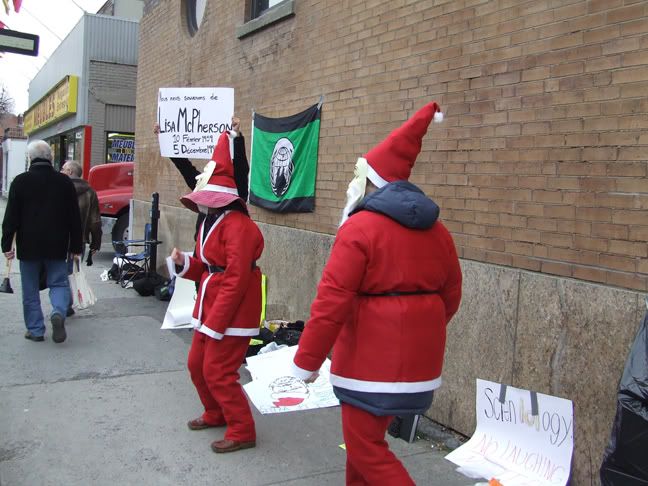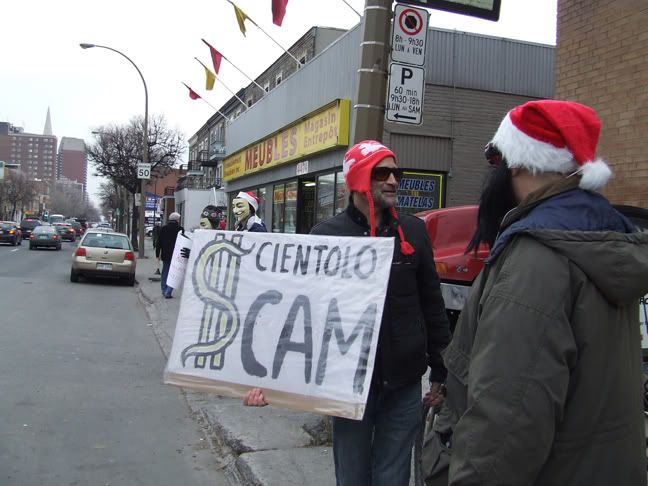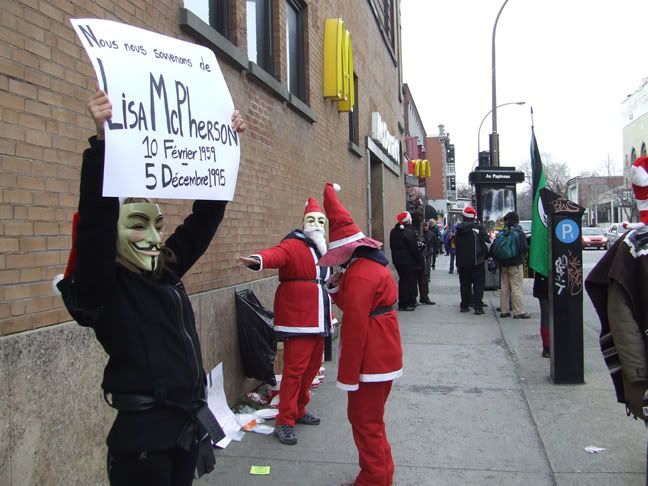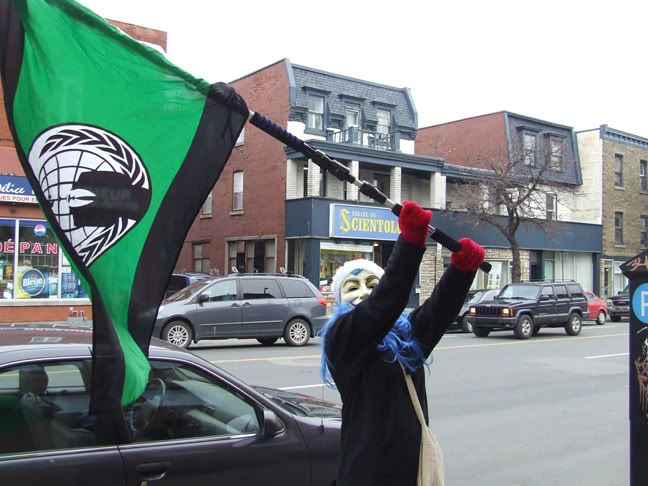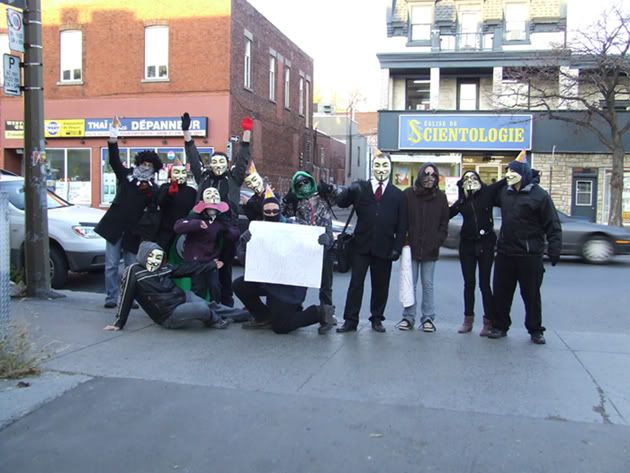.
Son témoignage est un condensé des abus contre lesquels Anonymous proteste: l'exploitation financière éhonté de ses membres, la suppression de la pensée critique, les techniques d'intimidations, les fausses promesses de guérison de graves conditions médicales, et l'isolement forcé des membres de ceux qui sont critiques envers la scientologie.
Excédé par ce qu'elle a vu dans la scientologie, elle manifeste depuis contre la multinationale aux côtés d'Anonymous.
“Your face makes me want to puke.”“You look like a big dufus sitting there.”
For two straight hours, I sat in a chair, not allowed to move a muscle or blink, staring into the eyes of the man slinging insults at me.
I was in a TR — or Training Routine — at the Church of Scientology on West 46th Street in Midtown Manhattan, a session that cost $150.
The process was called “auditing.” Ultimately, it was supposed to make your IQ skyrocket and give you greater confidence and control in life. At one point, the church brass even told me that Scientology — the religion founded by L. Ron Hubbard in 1952 that offers spiritual rehabilitation — could straighten my spine, which has been curved with Scoliosis since I was born.
I discovered Scientology one year earlier while I was surfing the Internet in Old Bridge, NJ, where I live with my parents. I came across a web forum called 4chan, where dissenters of Scientology plan protests outside of the church.
I had never been a spiritual or religious person — I was raised Christian but never went to any sort of church. Still, I only lived two hours away from the Midtown headquarters, and I was curious. I thought, “why are all these people protesting? It sounds so cool!”
So I checked it out myself. At Scientology headquarters I was led into a Basic Course Room in the basement where I met a woman who told me I had to buy a $150 class on Communications.
I told her I wanted to think it over. I was 19 and I worked at a convenience store after school and I said that my mom would freak out if I came home $150 poorer.
That’s when she tried to intimidate me.
“Mommy doesn’t want you to do it,” she said in a teasing baby voice. “Are you going to hang on Mommy’s apron strings for the rest of your life?” The class was an investment that would make me a better earner in the future, she said.
I realized that she wasn’t going to let me leave until I paid for the course. I was literally shaking.
That’s the way they work — they don’t want you to pause and consider things critically, a mode they call “in think.” They don’t give you time to be “in think” and question their practices.
But their tactics worked. I paid the fee and started my training.
The International Association of Scientologists regularly came to town to throw lavish fundraisers for members of the church. The minimum fundraising quota was always $500,000 and they would reach it in under two hours. Staffers would charge through the congregation yelling at people to donate. “This is your planet and all you care about is your money!” they yelled. “You should be giving every last dollar! If you don’t give your money you’re a Suppressive Agent!”
At one rally I saw a grown man break down in tears. “I’ve donated so much money that I’m broke. I have nothing left. You took all my money,” he pleaded.
One of the church leaders glared at him and yelled, “I know you’re holding out and that makes you a Suppressive Force!”
Meanwhile, I was moving up the ranks inside the church — I graduated from newbie to the “Academy” level and spent $1,000 for four courses.
In Academy, all the students sit in a classroom reading works by L. Ron Hubbard and filling out worksheets. In class, you’re not allowed to yawn — that means you’ve misunderstood a word that you read. If you lean over in your chair, you have to make a clay “demo” of one of the Hubbard theories.
Because I have Scoliosis, it always looks like I’m leaning. “Mandy, get the Play-Doh!” the teachers would bellow at me.
When I told my parents I was taking Scientology courses, they were horrified. But I lied to them about how much money I was spending there. I said it was all complimentary while, in fact, I was throwing thousands — all my savings and earnings — at the church.
For the leaders of the church, my parents posed a big problem. One leader, who was assigned to me, said I had to separate from my family because members could not be in the presence of those who criticize Scientology, even if they’re parents, children or a spouse. But I said I didn’t have enough money to move out and support myself.
My leader, however, could never see the other side. Once I told him that I’d looked at the Web site of the protesters against Scientology but I didn’t agree with them — I loved the church. He flew into a rage. “That’s like saying I don’t burn n- - - ers, I just like to party with the KKK!” he said.
A few months ago I met with an ethics officer of the Scientology police, and told him about my worries, including the man crying at the fundraiser. “I’m seeing a lot of things I don’t like here,” I said.
His response was that every church needed money to run. We kept arguing until he slammed his fist down and told me: “You’re too open-minded to be a Scientologist.”
At that moment I got up and walked out the front doors — into the noise and daylight of Manhattan. Right outside, clustering on the sidewalk, was a group of Scientology protesters. Without a moment’s hesitation, I joined them.
When I turned around I saw my leader, staring at me with a look of pure concentrated rage.
But I’m not afraid of them. My father’s a police officer and that means that they’ll leave me alone. Deserting the church is like having a 100-pound parasite pried off your back. I may be broke but I finally feel free — because I have a mind of my own.








